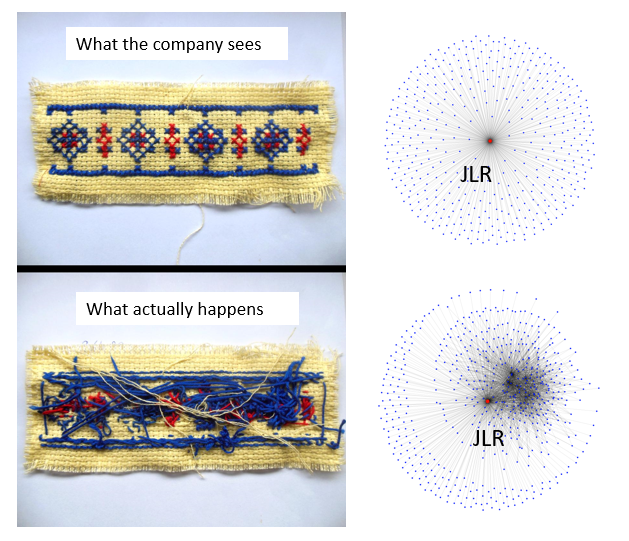ChainedRisk: A collaborative project with Aviva - DIAL Newsletter Winter 2021
DIAL’s Manufacturing Analytics Group, Aviva and Cambridge Centre for Data Driven Discovery (C2D3) have embarked on a PhD research project on using machine learning and network science to measure supply chain risk pertaining to business interruptions.
In recent years, Business Interruption (BI) has been reported as one of the top risks that companies are concerned with. Traditionally, major factors leading to BI are fires and natural catastrophes at the focal firms’ physical facilities. However, there is an increasing type of BI called Contingent Business Interruption (CBI) where disruption is not directly caused by any loss at the focal firms’ facilities, but rather due to disturbances on their suppliers. CBI in 2020 is reported to be far larger and more widespread than 5 years before. CBI is tightly linked to the fact that firms are now involved in a globally interconnected supply chain. Such a complex system produces compounded risk exposure to the firms involved. As a result, disruption is no longer constrained to geographical boundaries. Instead, it transcends across the whole network.
Some examples of recent supply chain disruptions include: COVID-19 (ongoing), Thailand flood (2011), volcanic eruption (2010), Japanese earthquake and tsunami (2011), California wildfire (2016), Cyberattacks (2018) and CO2 shortage (2018). All of these were caused by disasters that started in a particular geographical area. However, the disruption they bring propagate to the whole supply chain globally e.g. due to lack of parts/components supply.

Insurance underwriters and their clients face difficulty in identifying total supply chain risk exposure. This is because they typically have limited visibility beyond their first tier suppliers. Meanwhile, recent surveys found that disruptions coming from tier 2 and beyond are increasing in recent years. This results in a necessity for creating supply chain mapping technology to help customers discover hidden vulnerabilities within their network of suppliers.
This PhD project will focus on using machine learning and network science to extract and quantify such vulnerabilities within the supply chain. Focus will be given on a particular machine learning task called link prediction, where the objective is to identify hidden dependencies between firms in the network. To begin with, we will build upon our group’s previous models that has achieved up to 76% accuracy in predicting missing edges for an automotive supply chain. We will also work on the open problem in identifying cross-ecosystem dependencies.
For more information, please contact the PhD student: Edward Elson Kosasih (eek31@cam.ac.uk)
Date published
27 January 2021
For further information please contact:
Edward Elson Kosasih









